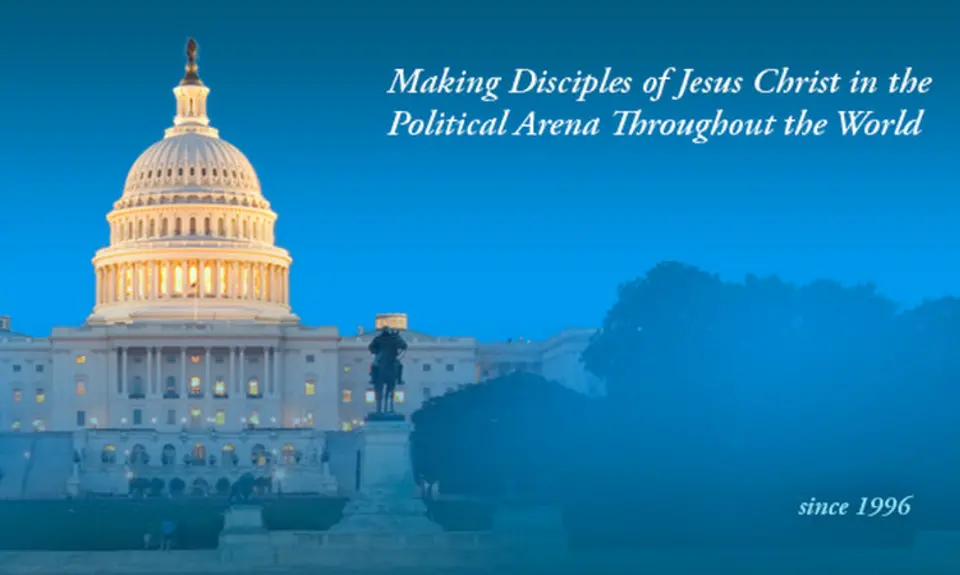Ralph Drollinger, the man who leads weekly Bible studies for members of the House, Senate and President Trump’s Cabinet, has devoted this week’s written study to denouncing what he calls “the fallacy of Christian Nationalism.” Drollinger is apparently annoyed that “secular journalist and left-wing blogger activists are attempting to strike fear in the hearts of society by falsely postulating that believers in office desire to turn America into a theocracy—a church controlled state.”
Drollinger, whose aggressively expanding Capitol Ministries is devoted to converting public officials at all levels of government to his particular biblical worldview and conservative take on Christianity, declared earlier this month that it was libelous for a New York Times commentator to refer to him as a Christian nationalist. In his new piece, Drollinger gives his definitions of various terms that he had equated in his letter to The New York Times—Christian nationalism, dominionism, Reconstructionism and theocracy—and declares that “not one Christian Public Servant I’ve ever worked with harbors motives of a theocratic takeover of some sort.”
Drollinger says he is not a Christian nationalist because he does not believe that the Church should run the government, and he does not believe that civil and ceremonial laws from the Old Testament—along with punishments like stoning homosexuals—are applicable today in “the age of the Church.” He reiterates his belief that the Bible calls for institutional separation of church and state. But, he says, “the Moral Law is and should remain the basis of civil government lawmaking today because it matches perfectly the conscience ‘chip’ that God has installed in everyone He has created…”
While noting Drollinger’s insistence that he is neither a Christian nationalist nor a dominionist, we recently recognized that some who read his writings may come to different conclusions, depending on how they understand and use those terms. Drollinger, for example, teaches that “Governments and their leaders must send a constant message that sin will be punished.” He tells public officials that the Bible obligates them to support the death penalty and that entitlement programs have no “biblical authority.” He says that “righteous” people who hold government jobs should not “compromise Biblical absolutes” and should hire only other “righteous” people to work for them. Last July, he told public officials not to be deceived by “syncretistic” prayer breakfasts—syncretism refers to the blending of belief systems—saying “God only hears the prayers of leaders and citizens who are upright, who live righteously through faith in Jesus Christ.”
It’s worth noting that Drollinger’s theological disavowal of dominionism and Christian nationalism as he defines them (as well as the more extreme Christian Reconstructionism) puts him at odds with some other members of the Trump-supporting coalition of conservative Christian leaders, some of whom fully embrace the Christian-nation rhetoric and dominionist teaching that Drollinger calls unbiblical.





